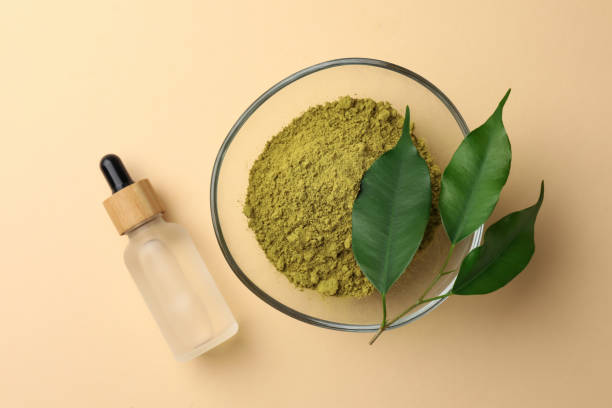The ASEAN organic cosmetic market is expected to reach a valuation of US$ 9,484.4 million by 2033. According to our consumer product industry analysts, the market is anticipated to grow at a steady CAGR of 5.4% over the forecast period, up from its current valuation of US$ 5,605.4 million in 2023.
The rising demand for vegan and cruelty-free cosmetics highlights the growing influence of ethical consumerism in the ASEAN organic cosmetics market. Vegan products, free from any animal-derived ingredients, appeal to consumers who prioritize ethical and animal-friendly choices. What once started as a niche trend has now become a mainstream movement within the clean beauty sector. To capitalize on this growing interest, major cosmetics brands have either entered the market directly or acquired smaller natural brands. As a result, clean beauty products are now more widely available in key retail locations, making them accessible to a larger audience. This shift is expected to drive significant growth in the ASEAN organic cosmetics market in the coming years.
The adoption of green packaging materials is increasing in the ASEAN organic cosmetics market. Environmental-conscious customers choose products with packaging that produces little waste and causes minimal environmental damage. Aside from catering to these consumers, brands that place value on sustainable packaging also show a concern for ethical and environmentally responsible conduct in accordance with the prevalent trend of sustainability worldwide
A few ASEAN-based organic cosmetics companies provide customization and personalization options. Customers may now customize items to suit their unique skin types, problems, and preferences. This strategy appeals to people looking for customized skincare solutions while also improving the entire consumer experience. In addition to meeting the particular demands of each customer, personalized products also encourage brand loyalty by establishing a feeling of exclusivity and engagement.
Competitive Landscape
The ASEAN organic cosmetics market is fiercely competitive, with numerous brands vying for consumers’ attention on grounds including product quality, innovation, sustainability, and sales strategies. Knowledge of the local market, international expertise, and a dedication to satisfying consumer desires for safe, natural, and environmentally conscious beauty products are frequently necessary for success in this industry. The market is characterized by ongoing innovation, with brands emphasizing distinctive formulations, environmentally friendly packaging, and sustainable ingredient sourcing. Brands that can adapt to changing consumer preferences and offer novel products are poised to prosper.
Recent Developments:
- In April 2022, the Thai clothing company ‘LYN’ introduced Lyn Beauty, a vegan and cruelty-free alternative.
- TARA, a South Korean marine beauty brand, made its formal Southeast Asian debut in Singapore in June 2021. TARA wants to take on Thailand and Vietnam next to increase its SEA footprint. TARA is a clean beauty skin care line with marine influences that makes the claim that it can provide a high-performance, results-driven skin care spa experience at home.
Key Takeaways from the ASEAN Organic Cosmetics Market Report:
- In 2018, the market size stood at US$ 4,366.9 million.
- In 2022, the market size stood at US$ 5,308.1 million.
- Skin care segment acquired 30%of the ASEAN organic cosmetics market shares in 2023.
- Departmental stores captured 70%of the ASEAN organic cosmetics market shares in 2023.
- Thailand acquired 29.0%of the ASEAN organic cosmetics market shares in 2023.
- Indonesia captured nearly 17.0%of the ASEAN organic cosmetics market shares in 2023.
- Malaysia gained 4%of the ASEAN organic cosmetics market shares in 2023.
Key Companies in the ASEAN Organic Cosmetics Market:
- Innisfree
- The Body Shop (owned by Natura &Co)
- Burt’s Bees (owned by The Clorox Company)
- Human Nature
- Hada Labo (Rohto Pharmaceutical Co., Ltd.)
- Sukin (BWx Limited)
- Neal’s Yard Remedies (Neal’s Yard Remedies Ltd.)
- Organic (Dr. Organic Ltd.)
- Tata Harper (Tata Harper Skincare, LLC)
- Melvita (L’Occitane Group)
Recent Developments Observed by FMI:
- The Thai clothing business ‘LYN’ debuted Lyn Beauty in April 2022 as a vegan and cruelty-free substitute.
- In June 2021, Singapore served as the official Southeast Asian launch location for the South Korean marine beauty brand TARA. TARA aims to take on Thailand and Vietnam next to expand its SEA footprint. According to the clean beauty skincare line TARA, a high-performance, results-driven skin care spa experience can be had at home, which draws inspiration from the ocean.
ASEAN Organic Cosmetics Market Segmentation
By Product Type:
- Skin Care
- Hair Care
- Make Up
- Fragrances
- Toiletries
- Others
By Distribution Channel:
- Departmental Stores
- Franchise Outlet
- Beauty Specialist Salon
- Direct Sales
- Chemist/Pharmacies
- Internet
- Others
About Future Market Insights (FMI)
Future Market Insights, Inc. (ESOMAR certified, recipient of the Stevie Award, and a member of the Greater New York Chamber of Commerce) offers profound insights into the driving factors that are boosting demand in the market. FMI stands as the leading global provider of market intelligence, advisory services, consulting, and events for the Packaging, Food and Beverage, Consumer, Technology, Healthcare, Industrial, and Chemicals markets. With a vast team of ~400 analysts worldwide, FMI provides global, regional, and local expertise on diverse domains and industry trends across more than 110 countries.
Contact Us:
Future Market Insights Inc.
Christiana Corporate, 200 Continental Drive,
Suite 401, Newark, Delaware – 19713, USA
T: +1-845-579-5705
For Sales Enquiries: sales@futuremarketinsights.com
Website: https://www.futuremarketinsights.com
LinkedIn| Twitter| Blogs | YouTube
